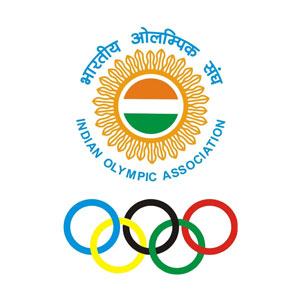
Bangalore, November 7: The elections to the Indian Olympic Association (IOA) are turning out to be family soap opera. A look at the electoral college shows how several families have used various sports as their personal fiefdoms. It also reveals that some of the big names which courted controversies recently are still very much in control.
Lalit Bhanot, the former big boss in athletics, who is being tried in cases relating to the Delhi Commonwealth Games, will attend the annual general body meeting on November 25 representing the Delhi Olympic Association.
Bhanot, who is likely to contest for the post of secretary-general, will be joined by Abhay Singh Chautala with the Indian Amateur Boxing Federation (IABF) forwarding his name as one of the three voters from the federation.
IABF has also named Chautala's brother-in-law Abhishek Matoria, who was controversially elected as the president, despite not being eligible to attend the meeting. Chautala can also expect the support of his brother Ajay who will cast his vote as the representative of the Table Tennis Federation of India.
The electoral rolls, released for the first time after the 1996 elections held in Bangalore, also expose the tradition of families ruling Indian sports.
Secretary-general and a candidate for the president's post, Randhir Singh, can expect support from the National Rifle Association of India led by Raninder Singh, who is his nephew. The same applies to Bowling Federation of India headed by Randhir's daughter Sunaina Kumari. Randhir also has a vote as the member of the International Olympic Committee (IOC).
Among those from other families who will be part of the elections and attract attention in the list, officially released on Tuesday by IOA acting president VK Malhotra, are SS Dhindsa (Punjab Olympic Association) and his son Parminder Singh Dhindsa (Cycling Federation of India), CP Singh Deo and his wife Raj Laxmi (rowing), the Nanavati brothers Kamlesh and Virender (swimming) and Rajeev Mehta (kho-kho) and wife Deepa Mehta (luge). There may be more such instances in this list and it appears that the fate of the candidates, which will be known soon, will depend on the favourites of these families.
That the prospective candidates have left no stone unturned in ensuring victory in the elections was evident from the nominees of Athletics Federation of India which excluded its president Adille Sumariwalla. AFI, in turn, nominated ML Jadam, who doesn't hold any post, along with CK Valson (secretary) and Sushil Salwan (vice-president).
Meanwhile, Union sports secretary PK Deb told TOI that the ministry will write to IOA and the returning officer about Abhay Singh Chautala.
"We will bring to their notice that the post of chairman doesn't exist in IABF. Whether he can vote or contest is for the returning officer to decide," Deb said.
HI gets IOA nod
With the administrators of hockey vertically split, the IOA on Tuesday went with Hockey India, giving voting rights to its nominees - Mariamma Koshy, Narinder Batra and Sudharshan Pathak. It also allowed the Indian Hockey Federation nominees - V Dinesh Reddy, Jatinder Peter and RK Shetty - to attend the meeting. "As per the Delhi High Court order dated October 16 you will be permitted to participate in the meeting but will not be entitled to vote as per the IOA constitution," acting president Vijay Kumar Malhotra said.





Comments
Add new comment